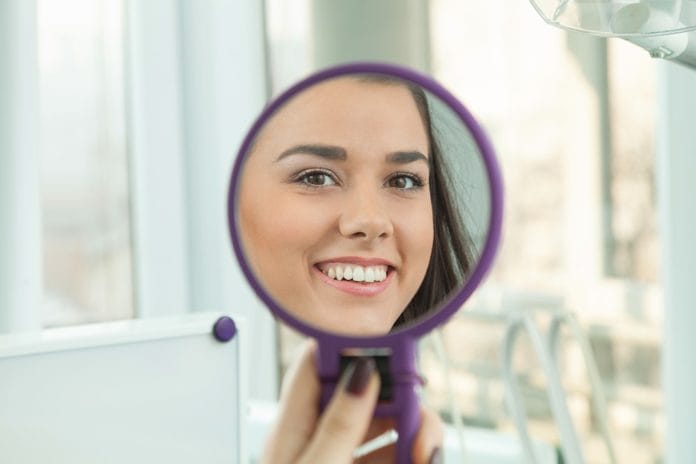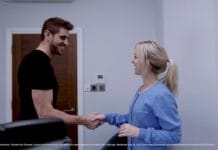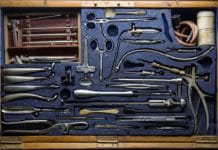My dental career began in Goose Creek, South Carolina, in 1987 at the ripe old age of 20. I was a certified dental assistant and immediately became hooked. I’m not sure what made me love it so; it could have been the smell of eugenol in the air, the fashionable scrubs I was able to wear, or the bright, shiny instruments that awaited me each day in the sterilizer.
The point was that I had finally found my niche and decided I was in this business for the long haul.
A few years later, at the prompting of my sweet employer, I returned to school for my dental hygiene degree and proudly graduated in 1992. I entered the workforce armed with my new hard-earned degree, tons of enthusiasm, and a lot of questions as well. I made my way as a new hygienist with a lot of help from wonderful mentors, patient dentists, and accommodating patients that made me realize I was still learning my trade. As I look back on my career of 30 years, there are several things I have learned and some I wished I had learned a little earlier. Let me share a few of these with you.
Take care of your body!
As a younger woman, I was able to stay up late watching movies and still work after only a few hours of sleep the night before. I could contort my body to be able to see those areas I needed to when the patient was unable or unwilling to allow me to keep the proper ergonomics.
But, ladies and gentlemen, it comes back to haunt you in the form of neck, hip, and back pain as the years go by. I know several hygienists who have had to change careers after just a few short years or endure surgeries to deal with the issues that can accompany working as a dental hygienist.
I applaud the dental hygienists who have regularly seen a chiropractor or massage therapist ever since they began practicing. I highly suggest following their lead! It’s imperative to keep your tools in the best shape possible to do a thorough job; we do not scale with dull instruments, right? Your body is your most important tool, and treating it as such can make all the difference in a long and pain-free career.
So, eat right, get enough sleep, exercise, follow proper technique, and see the therapist who can help you keep the neck and spine in line and feeling fine. Yes, I really did just make a rhyme!
You WILL miss something!
We all strive (or at least we all should strive) to be the very best hygienist that we can be for our patients, dentist, and co-workers. I personally think most hygienists are perfectionists and thrive on having all the boxes checked, so to speak.
But please don’t be disheartened when you expose that radiograph just to realize that you didn’t get that piece of burnished sub calculus on the distal of the molar. It happens. I enjoy as much as the next hygienist the before and after radiographs highlighting the excellent and thorough calculus removal. I also realize, though, that despite your best efforts, some calculus isn’t going to budge and may require treatment beyond your expertise.
It’s okay! I know, I want it all gone too, but there are times that won’t happen. The same with periodontal patients who do not respond to traditional or untraditional methods despite all the efforts that you both as a team have made to control the disease. That, ladies and gentlemen, is why we have periodontists. Again, it’s okay. If you explain to the patient what is going on in their own mouths and make the needed referrals for further treatment, you are taking care of your patients, which is why we are there in the first place.
Not EVERYONE is going to like you!
This includes patients and co-workers. You just are not everyone’s cup of tea, regardless of your efforts to be kind, understanding, pleasant, knowledgeable, compassionate, and all that jazz. I used to get my feelings hurt if a patient requested another hygienist. I would scour the notes, re-live the appointment in my head to try and figure out what I did wrong or what I could have done differently.
Nine times out of 10, there wasn’t anything I had done. The appointment went well, I was pleasant, had small talk, talked dental health, no discomfort they mentioned during their prophy, and they were dismissed without any treatment needed. So, what gives? Wait for it … I’m not the regular hygienist they were used to having, or the other hygienist has a child playing soccer with the patients’ child, or they are an old family friend, and the list goes on.
It usually has nothing to do with you. So please, just let it go. Some patients will love you and only want you; others are going to want to see someone else. Don’t take it personally.
Work relationships can be trying, as well. Personalities are a huge part of who you like to be around and, frankly, some personalities just clash. It’s life. More than likely you didn’t choose the people you work with, so you may not see things in the same way, results may be achieved in a different manner, you may be a quick start person, and they may not show the same urgency, and therefore tension may result.
We are all different people in this big old world, but as professionals, we should be able to rise above those differences for the sake of having a peaceful workday. After all, you don’t have to go home with these folks, just maintain a good working relationship.
Have a TEACHABLE spirit!
Dentistry has changed a lot over the 30 years I have been in practice. Dip tanks for developing radiographs have been replaced with digital sensors, CAD/CAM dentistry now allows for same-day crowns, saliva testing to control bacteria in the fight against periodontal disease is commonplace, the use of intraoral cameras to help show patients their treatment needs is such a valuable tool, therapy dogs are now onsite in some practices to help with high fear patients, and the list of changes and improvements are too numerous to list.
I say that to emphasize that dentistry has changed, and you as a clinician need to be pliable as well. Please don’t think that you know it all, or that there is only one way to achieve a desired result or my least favorite, “We’ve always done it this way.” Be willing to explore other things and try different products, techniques, suggestions from co-workers, bosses, or dental reps. Sometimes there is a better way to achieve your goal, so please be open to that possibility. Be teachable.
YOU make a huge impact!
Lastly, what we do matters, day in and day out. We all are educators, patient advocates, healthcare professionals, and managers of disease. At times, we are grief counselors, prayer partners, and cheerleaders for our patients’ successes. The bottom line is that we try our very best to help keep people healthy and keep their teeth for a lifetime.
Some of us go on mission trips to other countries. Some of us offer our services locally to those in need. We go to health fairs, elementary schools, and nursing homes to care for people in our communities.
We refer our patients with high blood pressure for hypertension evaluations with their physicians. That strange mole or lesion on our patient’s face or neck they haven’t noticed is brought to their attention and evaluated by their dermatologist because of our keen eyes. We discuss periodontal disease, its effects, and its direct link to cardiovascular disease on a daily basis.
We don’t just clean teeth! We are health-care professionals making an impact on our patients in their overall health as well as their dental health. Be proud and keep up the good work. I personally like what I see in my dental reflections.
Before you leave, check out the Today’s RDH self-study CE courses. All courses are peer-reviewed and non-sponsored to focus solely on high-quality education. Click here now.











